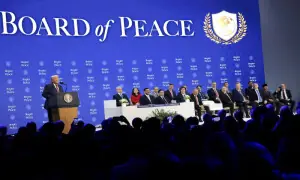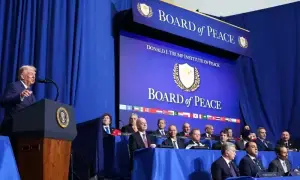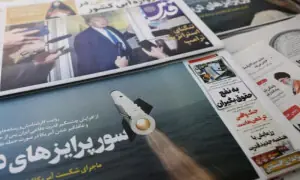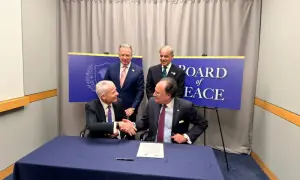Too hot to handle: the case of condoms vs chai in Pakistan
4 min readIn March Pakistan’s government declared tea an “essential commodity” or vital for domestic consumption, as it was sensing there would be a surge in tea drinking during Ramazan. To make imports easier, it removed barriers for importers to get Letters of Credit from banks, which are paperwork that guarantee payments abroad.
Pakistani culture runs on the fuel of chai, but we don’t produce enough of it to cater to our industrial levels of tea drinking. These numbers give a sense of the supply-demand gap: In 2021 we exported tea worth $23 million but we spent $622 million importing it, which is 26 times more.
Tea was deemed essential for Pakistanis. But other products have not been as lucky as the government is discouraging imports (that have to be bought with precious dollars amid a balance of payments crisis). Barriers to discourage imports in this economic atmosphere are not limited to tea. Sheath contraceptives have fallen victim to such limitations.
Since Pakistan does not produce condoms locally it has to import this method of family planning. The biggest producers of this basic necessity are based in Malaysia, India and Brazil. Both chai and condoms are imports—but why is tea considered more essential than condoms?
Restrictions on imports or demanding 100% cash margins on the import of sheath contraceptives have been serious barriers to importing and selling this commodity. They create an unstable environment in which importers find it difficult to arrange the money in advance to have their consignments shipped in. This squeezes supply and increases prices. (The 100% cash margin requirement was mercifully reversed in March 2021, but less than a year later a new barrier to access was put in place).
In January 2022, the federal government declared that it was applying a 17% sales tax on condom imports. On February 14, 2023, as a Valentine’s Day present to the Pakistani people, this sales tax was increased to 18%. (It is questionable whether a tax has any real impact on controlling an economy hurtling towards default.)
These decisions were taken despite the fact that condoms have been a protected essential good since 1974. In a country with a runaway population growth rate of 1.9% which is over twice the global average, contraceptives such as condoms are an essential method for reproductive health and family planning.
Greenstar Social Marketing, a social enterprise part of an international network, is a government partner for family planning. Saathi is described by them as their “poor man’s condom,” and a pack of two now costs Rs30. This means that one Saathi condom costs Rs15. The price of one naan is now about Rs20. Which one do you think the common Pakistani would rather spend their money on if pressed?
The sales tax of 18% on a single condom is just shy of Rs3 and while this may be chump change for our ruling elite, it forces ordinary people to choose between two separate needs.
Following the introduction of sales tax on sheath contraceptives in January 2022, Greenstar Social Marketing’s sales took a hit as people who would have ordinarily bought this form of contraception found their purchasing power significantly limited.
Saathi sales fell from 5.3 million in February 2021 to 1.5 million by February the next year. In March 2021 almost 9.4 million units were sold but sales fell to 2.7 million in March 2022. By July 2022, GSM was forced to provide a further discount in an attempt to increase access to this essential commodity. However, despite these strategies, sales for the rest of the year continued to slide.
GSM estimates that government revenue through this sales tax collection may have been about Rs110 million (based on estimated sales of 241 million units in 2023). And we ask, is this not chump change on a national scale for a growing population of over 230 million?
Strangely enough, discouraging pricing for condoms has been happening as the government makes others efforts to curb Pakistan’s population growth rate. Chief Justice Saqib Nisar took suo moto notice of the population boom in 2018 and an Action Plan (2019-2024) was developed with federal and provincial governments and UNFPA. But like the best laid plans they are only effective when the parties charged with specific tasks are vigilant and dedicated to the cause, and like most suo moto matters, focus on this case was lost once the chief justice retired in 2019. The Public Interest Law Association of Pakistan has now filed over one hundred Right to Information requests with different government departments inquiring about the status of the tasks assigned to them under the Plan and is awaiting responses.
This new sales tax regime also contradicts recent legislative progress for sexual and reproductive health. Laws such as the Sindh Reproductive Healthcare Rights Act, 2019 promises to ensure ‘contraceptive commodity security’ in alignment with Pakistan’s international commitments. This means that commodities like contraceptives must be affordable and easily available in order for people to secure access to reproductive health.
It appears that the legislature, executive and judiciary live in the fantasy of working for the “good of the country” but fail to communicate with each other, let alone engage in a productive dialogue, on how best to collectively achieve the goal of reproductive health and family planning. The question is ultimately about the priorities of the government, or maybe it’s just a case of chai versus condoms.
Summaiya is a legal historian. Haider is a social anthropologist
For the latest news, follow us on Twitter @Aaj_Urdu. We are also on Facebook, Instagram and YouTube.

























Comments are closed on this story.